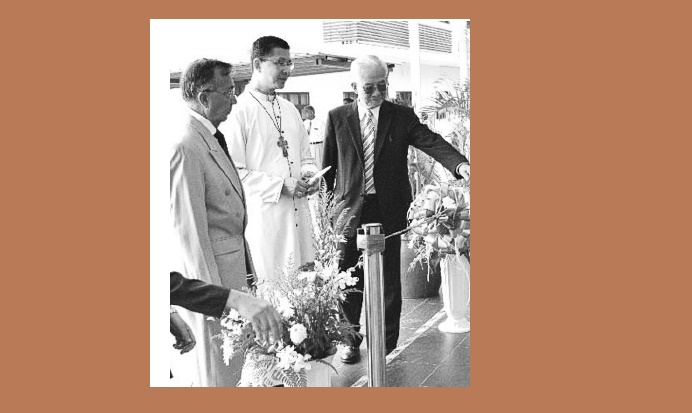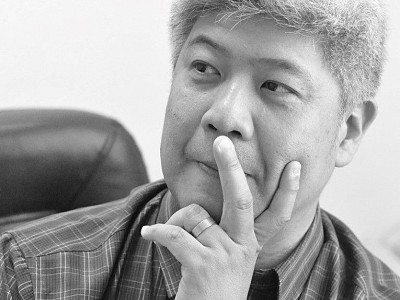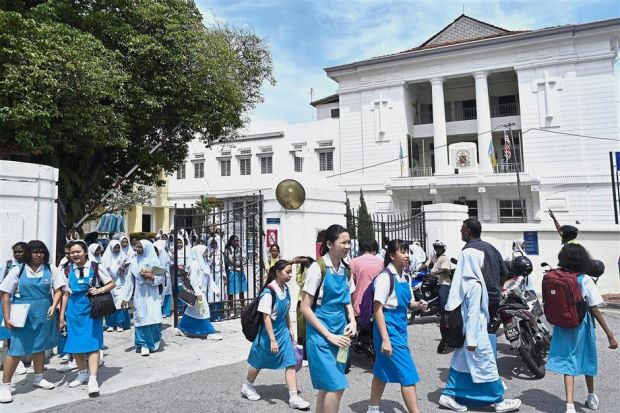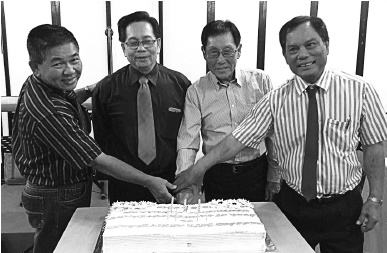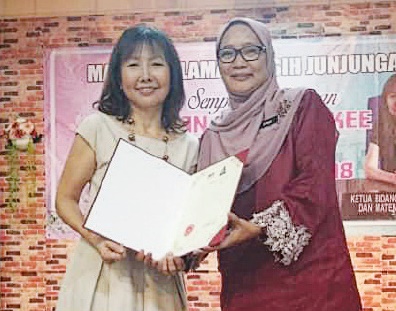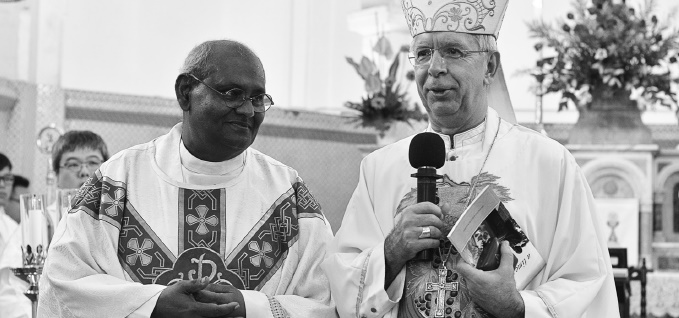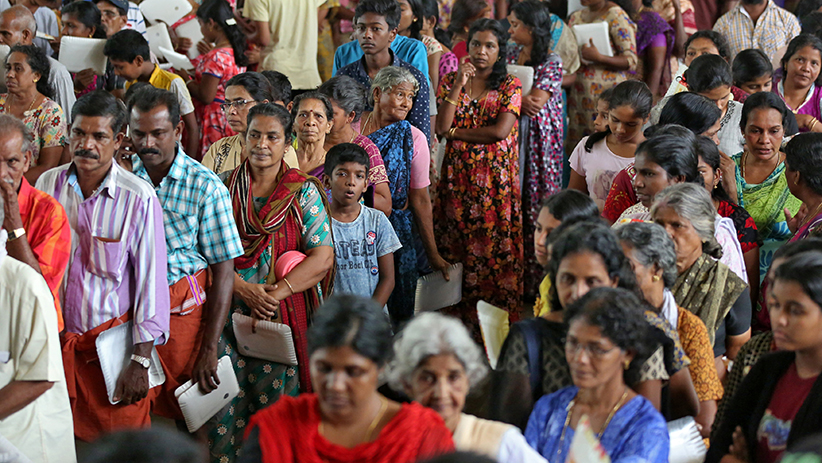KUALA LUMPUR: Archbishop Julian Leow Beng Kim officially blessed and opened the Stella Maris International School (SMIS) on August 15, the feastday of the Assumption of Our Lady. SMIS is today accredited with Cambridge International Examinations for both ‘O’ and ‘A’ Levels and is recognised as an IB World School, qualified to offer and run the International Baccalaureate Diploma Programme (IBDP).
The day began with the Eucharistic celebration, at two locations in order to accommodate all who were present — the school chapel and the Soter Auditorium. This was followed by the blessing of the newly completed Sports Centre before all guests adjourned to the school’s forecourt to be greeted by a parade of uniformed units.
The beating of drums accompanied the Archbishop as he made his way to cut the ribbon and sign the plaque declaring the school officially opened. Guests were then taken on a guided tour of the various facilities in the school before being ushered into the Auditorium for presentations by students and faculty members.
In welcoming the guests, BGen (Rtd) Dato’ Richard Robless, Chairman of Yayasan Tan Sri Dominic Vendargon and the
Board of Governors, thanked all who had participated and provided support in the design, building and equipping of the school and those who had contributed in shaping, developing and preparing the curriculum.
With the introduction of the international Year 1 next year, SMIS will be fully operational in both the IGCSE primary and secondary tiers. Elaborating on the journey travelled, he acknowledged that from the start, the main challenge had been to develop options in wholesome and balanced education that would meet standards of quality and fulfil the expectations of families from various backgrounds and categories of income with different perspectives of choice.
The aim, he said, “had always been to provide such options as affordablility and, reaching out to as many as possible.”
As a Malaysian school, he stressed on the importance of including Malaysian History and promoting fluency in both English and Bahasa Malaysia, with a third language as well for those so inclined. Developing students to enable them to achieve the maximum of their potential was the main objective of the Stella Maris schools, with its vision being the formation of persons who would “serve as morally upright and model citizens of our nation of diverse cultures” and, “contribute towards the betterment of their families, society and the greater good of humankind.”
Archbishop Leow expressed his gratitude to all those who had contributed in making this dream possible and for making the school happen. The Catholic Church has contributed greatly to developments in education and in doing so, has always emphasised that education should not be looked at solely from the stance of academic excellence. “Holistic education and the healthy and balanced growth of our students are our major aims,” he stressed, as intellectual capacity alone is inadequate and needs to be developed progressively and jointly with spiritual, emotional and physical health. In moving ahead, he also reminded the school to be protective of its students, to be conscious of standards and to remain focused on the expectations of parents so that all stakeholders will reap the benefits of an educational experience in SMIS.
This was followed by performances by the students and faculty members who had taken great pains to make the day an especially memorable occasion. The event was brought to a close with a sumptuous lunch at the school cafeteria.
Article reproduced from Herald Malaysia online


